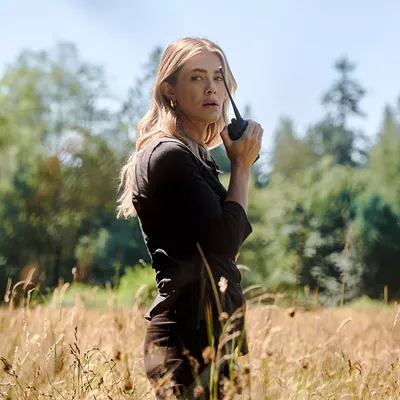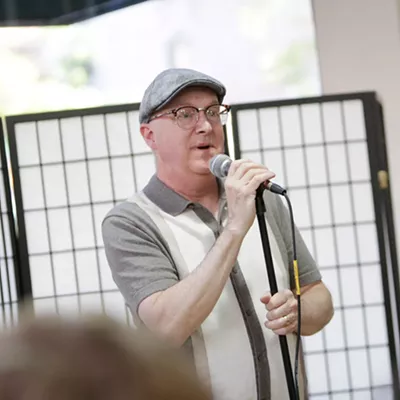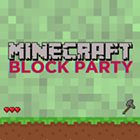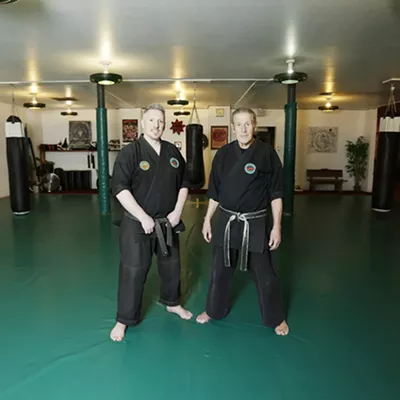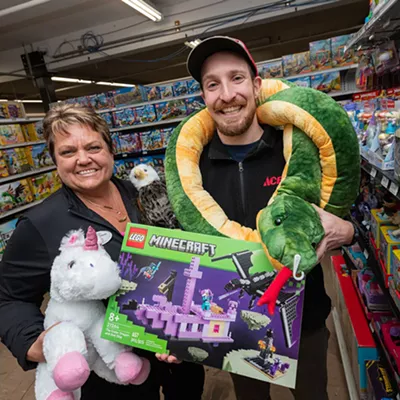In his poem “Autumn Begins in Martins Ferry, Ohio,” James Wright spoke of high-school football players, sons of blue-collar men and women who “grow suicidally beautiful / At the beginning of October, / And gallop terribly against each other’s bodies.”
For the past nine years, another kind of competition has taken place around the beginning of October in different cities across the U.S. and Canada. Though not as aggressive as football or as its name would suggest, the Individual World Poetry Slam (aka iWPS) nevertheless pits contender against contender until just one victor remains.
This year the multi-day event of performances and workshops has come to Spokane. Isaac Grambo, the event manager for Spokane Poetry Slam as well as Host City Coordinator for iWPS 2014, says this simple fact offers multiple reasons to celebrate. For starters, iWPS is frequently held in the East. It was a minor triumph when a Northwest city, let alone a mid-sized one, secured the winning host bid.
Also consider the recent tribulations of Spokane Poetry Slam. Despite the maturity of the local poetry scene and the unique involvement of area universities, the organization fell quiet for a year after the closure of the Empyrean, its longtime stomping ground, in 2011. Only this summer did SPS send a team — its first since 2010 — to participate in the National Poetry Slam in Boston.
Grambo, an animated, mustachioed Boise transplant, was encouraged by veteran local poet Mark Anderson to make the bid for iWPS (pronounced “eye-whoops” in spoken shorthand) regardless. If nothing else, it would be an inventorial “exercise of seeing what we have in terms of a poetry community and in terms of a support community for venues and interest.”
“So I filled [the form] out,” says Grambo, “and by the time I got done, I’d convinced myself that we can totally do this.” The acceptance call from Poetry Slam, Inc., the national body, came on New Year’s Eve — and with an added request: Could Spokane host iWPS in 2013, not in 2014 as initially planned?
Clearly, Grambo — with help from Anderson, Audrey Connor, Chris Cook, Teri Koski, Kurt Olson and Spokane Arts Fund program manager Karen Mobley — succeeded in doing so, lining up venues like Interplayers, Neato Burrito, Auntie’s and The Bing to host the various competitions. Poets — 72 in total — representing cities from all over North America are currently going head-to-head in bouts. A dozen of them will ultimately vie for the championship at the finals this Saturday.
Hosting a national event like iWPS is an ideal way to pique wider interest in Spokane’s slam poetry scene, something Grambo sees as a way of countering the alienating misconception that slam is a closed shop. That’s because performance poetry, like, say, The Rocky Horror Picture Show, comes with its own jargon, etiquette and metrics.
Take the judging process.
“There can be things we refer to lovingly as ‘hostage poems,’” he says. “A hostage poem is something that is very emotional, but generally there is an accepted response. So if I’m doing something about cancer, you’re going to score that well. Because if you don’t, that means you like cancer.” As a result, mediocre poems with “hostage” topics can advance their orators in spite of themselves.
And if the audience shouts, You rat bastard, you’re ruining it for everyone! in unison? That means a poet has exceeded the three-minute time limit. Fortunately, Grambo has prepared a handy iWPS reference guide to explain the “paradox of slam” and help newcomers feel more at home. Audience participation, he says, is a crucial aspect of performance poetry.
“The stereotype of poetry is either guys in tweed jackets with leather elbow patches, or it’s beatniks and a lot of snapping and bongo drums,” he says. “Slam is a lot of cheering, yelling — and that’s just from the audience. It’s the rock ’n’ roll version of poetry.”
Individual World Poetry Slam • Through Oct. 5 • Various venues • Event pricing ranges from free to $60 festival passes • Finals: Sat, Oct. 5, 7 pm, at the Bing • iwps.poetryslam.com






